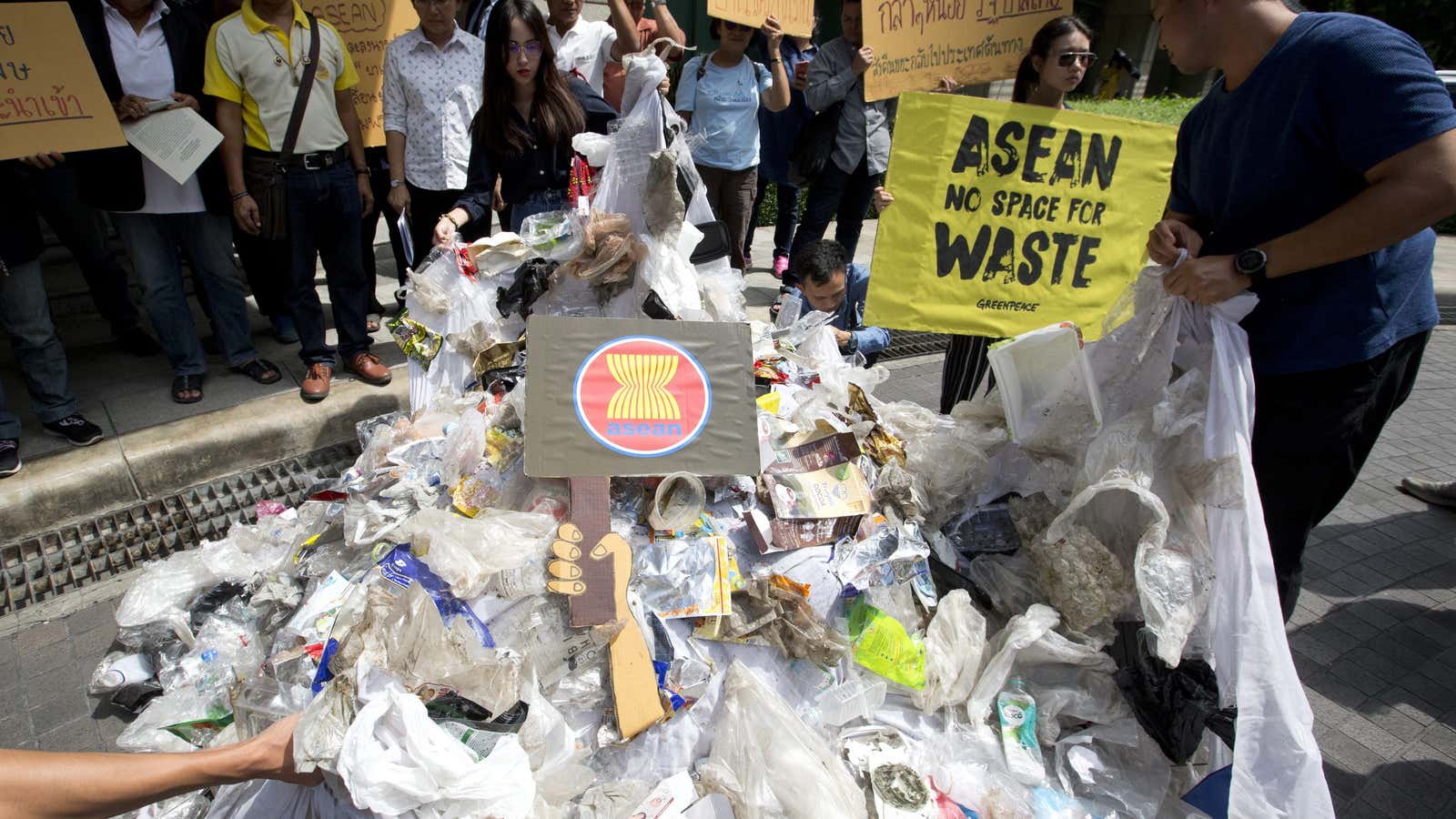Veterinarians say the baby dugong died of shock.
At some point in her short life, the marine mammal swallowed plastic, which blocked her intestines. They became inflamed, and her digestive tract filled with gas, leading to a blood infection and pus in her lungs, according to officials in Thailand who spoke to the Associated Press. She died on Saturday (Aug. 17).
Up until that point, the 8-month-old animal had become a sensation on Thai media. Her story was an endearing example of cross-species affection.
Dugongs are close relatives of the manatee. Babies typically spend up to eight years in their mothers’ care—so when a very young dugong was found swimming alone in the south of Thailand, veterinarians knew she wouldn’t survive on her own. They named her Marium, and a host of volunteers and vets went out in canoes every day to feed her seagrass and milk. Photos of Marium nuzzling with her caretakers quickly spread on Thai media.
Dugong Marium being fed by her caretakers.
“She’s attached, and tries to swim and cling to the boat as if it was her mother, and when we are swimming she would come and tuck under our arms. It’s almost like the way she would tuck under her mother,” an aquatic animal veterinarian in Thailand who advised Marium’s caretakers told reporters several months ago.
The type of plastic blocking Marium’s intestine wasn’t disclosed, and the world will likely never know if it was once a plastic shopping bag, or a soda cap, or a scrap of a chips bag that served a useful purpose for mere moments. But one thing is for sure: Thailand is inundated with plastic waste. And a lot of it comes from the US.
Right now, the US recycles roughly 9% of the plastic it uses. But that 9% figure also includes plastic waste that is shipped to another country to recycle—regardless of its ultimate fate.
Until recently, China was the world’s primary destination for plastic recycling. From 1992 until 2017, China (and Hong Kong, which acts as an entry port into mainland China) imported 72% of all plastic waste. It was the top destination for plastic from the US, the UK, Mexico, Japan, and Germany.
But in 2017, China started cutting back. It had had enough of poorly-sorted and highly-contaminated bales of mixed plastic from other countries; too much contamination in a bale makes the plastic virtually valueless. Then in 2018, it basically closed the door. It imposed a policy known as “national sword,” which raised the standard of how “pure” a bale of plastic must be to the point where the US and other countries, for the most part, can no longer comply.
Countries relying on China to take their waste scrambled. In the US, there wasn’t (and still isn’t) infrastructure in place to handle it. Instead, the US began shipping its waste to whatever Asian country would take it. Exports from the US to Thailand increased dramatically in 2017, up 7,000% in a single year, according to NPR. (In 2018, Malaysia became the top destination for US plastic, importing 132% more recycling in the first 10 months of the year than it had in all of 2017, according to the LA Times.) Thailand announced in 2018 it would ban imports of plastic waste beginning in 2021.
Plastic in the ocean could conceivably come from anywhere. After all, it doesn’t disappear, and ocean currents are all connected. But when it comes to what a baby dugong was eating close to shore, it could well have been a piece of plastic used once, in a land far away, that arrived to Thailand by ship because the country that used it didn’t know where else to put it.
